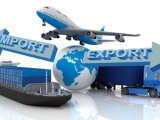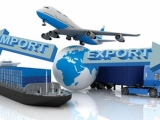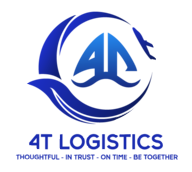News
4T Logistics has cooperated with more than 100+ strategic partners & customers to develop together as our slogan: be Thoughtful- in Trust- on Time- be Together

CUSTOMS PROFESSIONAL MANUAL (P1)
Date Submitted: 09/02/2023 02:49 PM
Questions 1:
Circular No. 38/2015/TT-BTC dated March 25, 2015. Circular No. 39/2018/TT-BTC dated April 20, 2018 of the Ministry of Finance allows businesses to declare goods in one place and receive goods at other border gates across the country. Enterprises have made declarations in Ho Chi Minh City for shipments at Hai Phong port border gate. The case of the customs system of red channeling (inspection). We would like to send an official letter to Hai Phong customs for inspection. However, Circular No. 39/2018/TT-BTC stipulates that household inspection only applies to bulk cargo, bulk goods, processed imported goods, and export production. In this case, what should enterprises do to declare at Ho Chi Minh City Customs?
Reply:
Clause 9, Article 29 of Circular No. 39/2018/TT-BTC dated April 20, 2018 of the Ministry of Finance amending and supplementing a number of articles in Circular No. 38/2015/TT-BTC dated March 25, 2015 regulations on physical inspection of goods at the request of the Sub-department of Customs where the customs declaration is registered. The physical inspection of goods specified in this Clause applies only to bulk cargoes, bulk cargoes and goods imported for processing and production of exported or imported goods of export processing enterprises.
In case of problems with the inspection, the Customs Department of Ho Chi Minh City has sent a dispatch to the General Department of Customs but has not received a written reply. Recommend enterprises to comply with regulations.
Question 2:
The parent company in Japan delivers laptops to Vietnamese employees to use. The Vietnamese employees who returned to Vietnam did not declare and do not pay tax for these laptops. The parent company issues an invoice to collect this laptop number to its subsidiary in Vietnam. However, the subsidiary in Vietnam does not have the documents to prove the import for this number of laptops. Request the HCM City Customs Department to guide the import procedures for this used laptop.
Reply:
Regarding product policies: Pursuant to the List of used information technology products banned from import specified in Circular No. 11/2018/TT-BTTTT dated October 15, 2018 of the Ministry of Information and Communications, Used goods with HS code 8471.30.20 "Laptop computers, including notebooks, subnotebooks, tablet PCs" are on the List of used information technology products banned from import into Vietnam market.
Where used laptops are hand luggage of individuals entering Vietnam, they may be imported tax-free according to the provisions of Clause 1, Article 6 of Decree 134/2016/ND-CP.
In case individuals bring goods to the company's household, they must declare and attach relevant vouchers, records and documents to carry out procedures as prescribed upon entry.
It is recommended that enterprises contact the Customs office directly to check information, documents and documents related to goods and have specific instructions.
Question 3:
In Japan, goods can be checked before arrival or before customs declaration, businesses will submit documents and can conduct customs declaration soon. Is there a similar system in Vietnam?
Reply:
According to Article 26 of Decree 08/2015/ND-CP as amended in Clause 13, Article 1 of Decree 59/2018/ND-CP and Article 19 of Circular 38/2015/TT-BTC amended and supplemented in Clause 8 Article 1 of Circular 39/2018/TT-BTC:
Currently, the receipt, inspection, registration and processing of customs declarations are regulated as follows: The customs electronic data processing system receives, examines, registers and processes customs declarations. 24 hours a day and 7 days a week. The declaration will be classified on the basis of risk management, including 03 streams: stream 1, stream 2 and stream 3.
– Flow 1: accept declared information immediately after processing by the System.
– Flow 2: checking relevant documents in the customs dossier submitted or presented by the customs declarant or related documents on the National Single Window Portal.
– Flow 3: Physical inspection of goods on the basis of checking relevant documents in the customs dossier submitted or presented by the customs declarant or related documents on the National Single Window Portal family.
Our company is a DNCX processing for foreign traders. Our company has imported from abroad some raw materials for processing and exporting goods to foreign countries. But there are some materials that we can't determine the exact amount, so when we report the settlement - liquidity there is always a difference between the reported data and the reality, leading to us being taxed and fined. administrative offense. Please guide us in this case.
Reply:
Pursuant to Article 55 of Circular No. 38/2015/TT-BTC dated March 25, 2015 of the Ministry of Finance as amended and supplemented by Circular No. 39/2018/TT-BTC dated April 20, 2018 of the Ministry of Finance. stipulating the actual production level of processed goods and manufactured goods for export, then:
– Enterprises must determine the actual norm before production. Actual norm is the actual quantity of raw materials and supplies used for processing and manufacturing a unit of export product and is determined according to the provisions of form No. 27, Appendix II issued with this Circular.
- During the production process, if there is a change, the enterprise rebuilds the norm and is responsible for storing data, vouchers and documents related to the determination of the actual norm and notifying the actual norm of the quantity. products manufactured according to the fiscal year to the customs authority when reporting the final settlement as prescribed in Clause 2, Article 60 of this Circular.
Particularly for manufactured products that do not yet have finished products at the end of the fiscal year, organizations and individuals are not required to pay actual norms when submitting finalization reports (for example: processing, manufacturing, etc.) If the export of ships is expected to be completed within 3 years, the actual norms must be paid until the third fiscal year).
- For supplies that cannot be defined according to product norms, organizations and individuals must store documents related to the use of materials and show them in the final settlement report on the situation of export - import - inventory of the company. this material.
- Organizations, individuals and customs offices shall use the actual production norms to determine the tax amount when changing the purpose of use, changing the domestic consumption of products, refunding or not collecting tax. Or as a basis for customs authorities to conduct post-clearance inspection, specialized inspection.

CUSTOMS PROFESSIONAL MANUAL(P2)
Date Submitted: 09/02/2023 03:20 PM
Question 5:
Our company is an EPE company specializing in the production of metal products. Currently, our company wants to expand the industry to serve the needs of customers. This category is providing services: maintenance and repair, installation of machinery, operation support, etc. to domestic customers.
So what should our company do? Is there an area division in the company? How to pay tax?
Reply:
Service activities as presented by the company are not subject to the management of the customs authority. It is recommended that enterprises contact the Management Board of EPZs & IZs for guidance.
Question 6:
According to Clause 1c, Article 74 of Circular No. 38/2015/TT-BTC stipulating:
Goods imported to serve the production of export products of an EPE must go through customs procedures according to regulations and be used for production purposes, except for the following cases where the EPE and its partners are selected. carry out or not carry out customs procedures:
c) Goods are circulated within an EPE, or between EPEs in the same export processing zone;
So if the DNCX chooses not to go through customs procedures, is it correct when buying goods to exercise the right to export?
Reply:
In Clause 1, Article 74. General provisions for goods imported to serve the production of export products of EPEs must carry out customs procedures according to regulations and use them for production purposes, except for the following cases: the following case the EPE and its partners are selected to carry out or not to carry out customs procedures;
In case an EPE buys goods to exercise the right to export or to import, it shall comply with the provisions of Article 77 of Circular 38/2015/TT-BTC.
It is recommended that enterprises carefully study the above provisions to implement.
Question 7:
If an EPE buys raw materials, supplies and equipment that participates in production activities and constitutes export products from the domestic market, paying taxes in full, they do not need to declare customs, right or wrong? Should it be included in the settlement report?
Reply:
Pursuant to Clauses 1 and 2, Article 74 of Circular No. 38/2015/TT-BTC dated March 25, 2015 of the Ministry of Finance as amended and supplemented by Circular No. 39/2018/TT-BTC dated April 20/ 2018 of the Ministry of Finance:
Goods imported to serve the production of export products of export processing enterprises must comply with customs procedures as prescribed and be used in accordance with the production purposes.
If buying raw materials, supplies and equipment to participate in the production of export products of EPEs, they must carry out customs procedures and report the final settlement.
Question 8:
Imported goods in the form of A12 are Gas for drying ovens, spare parts and equipment for machinery and factory tools, will DNCX include them in the final settlement report?
Reply:
Pursuant to Official Letter No: 2765/TCHQ-GSQL dated April 1, 2015 on the import and export type codes on the VNACCS system, the A12 type is prescribed as follows:
Importing for production and business (goods are cleared at a Customs Sub-Department other than the Sub-department of Customs at the border gate), used in cases where enterprises import goods for consumption or for mere commercial business; import and trade in input materials for production activities (except for GCs, exporters, EPEs and enterprises in non-tariff zones). Imported goods for tax-free investment or tax payment shall carry out procedures at other Customs Sub-Departments other than the Customs Sub-Departments at the checkpoint of import; domestic enterprises importing and trading goods from non-tariff zones, EPEs or doing business on the spot.
Thus, if the EPE imports the above goods according to the A12 form, it is not suitable for the purpose of importing raw materials of the EPE from abroad/domestic for the production and processing of export products of the EPE, so it is not included in the final settlement report. (only report the final settlement for raw materials, production supplies and exported products as prescribed in Article 60 of Circular No. 38/2015/TT-BTC)
Question 9:
Enterprises import and export raw materials for export, however, for a long time, the quality of this material has been reduced and cannot be put into production. If an EPE wants to destroy this amount of raw materials, does it have to pay import tax and VAT?
Reply:
Pursuant to Clause 7, Article 16 of the Law on Import Tax and Export Tax No. 107/2016/QH13, Article 12 of Decree No. 134/2016/ND-CP dated September 1, 2016 of the Government;
Pursuant to Article 3 of the VAT Law No. 13/2008/QH12, goods and services used for production, business and consumption in Vietnam are subject to VAT. Except for the subjects specified in Article 5 of this Law;
Pursuant to Clause 20, Article 5 of the VAT Law No. 13/2008/QH12 stipulates: Goods transshipped or in transit through the Vietnamese territory; goods temporarily imported for re-export. Goods temporarily exported or re-imported; raw materials imported for the production or processing of goods for export under the export processing or production contract signed with a foreign party are not subject to VAT;
Compare according to the guidance of the General Department of Customs in Official Dispatch No. 8127/TCHQ-TXNK dated December 13, 2017, Official Dispatch No. 569/TCHQ-TXNK dated January 29, 2018, import tax and VAT in this case do the following:
In case the goods are raw materials, supplies and components imported for the production of export goods, which no longer needs to be used, they must be destroyed. Raw materials, supplies and components imported for the production of export goods have been put into production and sold into semi-finished and finished products but are damaged and must be completely destroyed. Must declare and pay import tax and not have to pay VAT. Enterprises must pay VAT in case goods are destroyed but are still valid for use and are consumed in Vietnam according to the provisions of the law on VAT.
Question 10:
If the enterprise has scanned the dossier and signed it with a digital signature, is it necessary to keep the original paper documents?
Reply:
Customs records that the declarant must keep are specified in Article 16a of Circular No. 39/2018/TT-BTC dated April 20, 2018 of the Ministry of Finance amending and supplementing a number of articles in Circular No. 38 /2015/TT-BTC dated March 25, 2015 of the Ministry of Finance.
The customs declarant is responsible for keeping the originals of the documents in the customs dossier specified in Clause 1 of this Article for a period of 5 years and presenting them to the customs authority during post-clearance inspection or inspection. The original can be presented in the form of an electronic document or a paper document.
Therefore, even though the enterprise has scanned the dossier and signed it with a digital signature, it still has to keep the paper dossier according to the above regulations.
Question 11:
Scrap, hazardous waste and industrial waste obtained in the production process. When carrying out the collection, do the EPEs have to make an official dispatch to notify the Customs for supervision? Because it is related to the consumption rate in the norm?
Reply:
Pursuant to Clause 4, Clause 5, Clause 7, Article 75 of Circular 38/2015/TT-BTC dated March 25, 2015 of the Ministry of Finance. Amended and supplemented by Circular 39/2018/TT-BTC dated April 20, 2018 of the Ministry of Finance, the handling of scrap and waste products of EPEs is carried out as follows:
Handling scrap and waste products of EPEs
a) As for scraps and discarded products that are allowed to be sold in the domestic market. Customs procedures shall comply with the provisions of Chapter II of this Circular. Accordingly, the export processing enterprises carry out export procedures and the domestic enterprises open customs declarations of imported goods according to the respective types;
b) For scraps and discarded products permitted to be exported abroad. EPEs shall carry out export procedures as prescribed in Chapter II of this Circular.
The destruction of raw materials, supplies, scraps and waste products of EPEs. Comply with the provisions at Point d, Clause 3, Article 64 of this Circular.
EPEs handle waste according to the provisions of the law on environmental protection. The EPEs are responsible for keeping detailed books and presenting them to the customs authority upon inspection.





